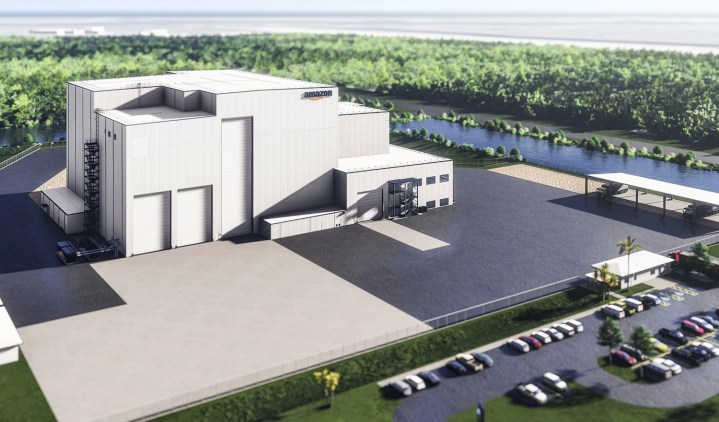
Amazon has a bold plan to take on SpaceX’s internet-from-space Starlink service, but there’s plenty of preparation work to be done before it can begin commercial operations.
Like Starlink, Amazon’s Project Kuiper service will be powered by several thousand small satellites in low-Earth orbit designed to provide fast, affordable broadband to unserved and underserved communities around the world.
Moving toward its goal, the company recently announced that it will invest $120 million in a satellite-processing facility at Space Florida’s Launch and Landing Facility at the Kennedy Space Center.
The 100,000-square-foot facility will prepare and integrate the satellites with a United Launch Alliance (ULA) or Blue Origin rocket in the final step prior to being blasted into space from the nearby Cape Canaveral launch site.
“We have an ambitious plan to begin Project Kuiper’s full-scale production launches and early customer pilots next year, and this new facility will play a critical role in helping us deliver on that timeline,” said Steve Metayer, vice president of Kuiper Production Operations.
Metayer added: “We look forward to adding more talent to our skilled operations and manufacturing team. These employees will play an important part in our mission to connect tens of millions of customers worldwide.”
Amazon said it’s planning to launch two prototype satellites in the coming months to test its network and subsystems.
The company will also start satellite production at a facility in Kirkland, Washington, before the end of this year. Once built, the satellites will be sent to Amazon’s new satellite-processing facility in Florida for final preparations ahead of launch. The site will have a 100-foot-tall clean room that’s able to accommodate the payload fairing of new heavy-lift rockets like Blue Origin’s New Glenn and ULA’s Vulcan Centaur.
In March, Amazon unveiled the terminals that Project Kuiper customers will use to connect to the internet service. Amazon said at the time that it wanted a design that offered something “smaller, more affordable, and more capable” than those offered by the likes of SpaceX for Starlink, though pricing details for the hardware and service have yet to be revealed.


